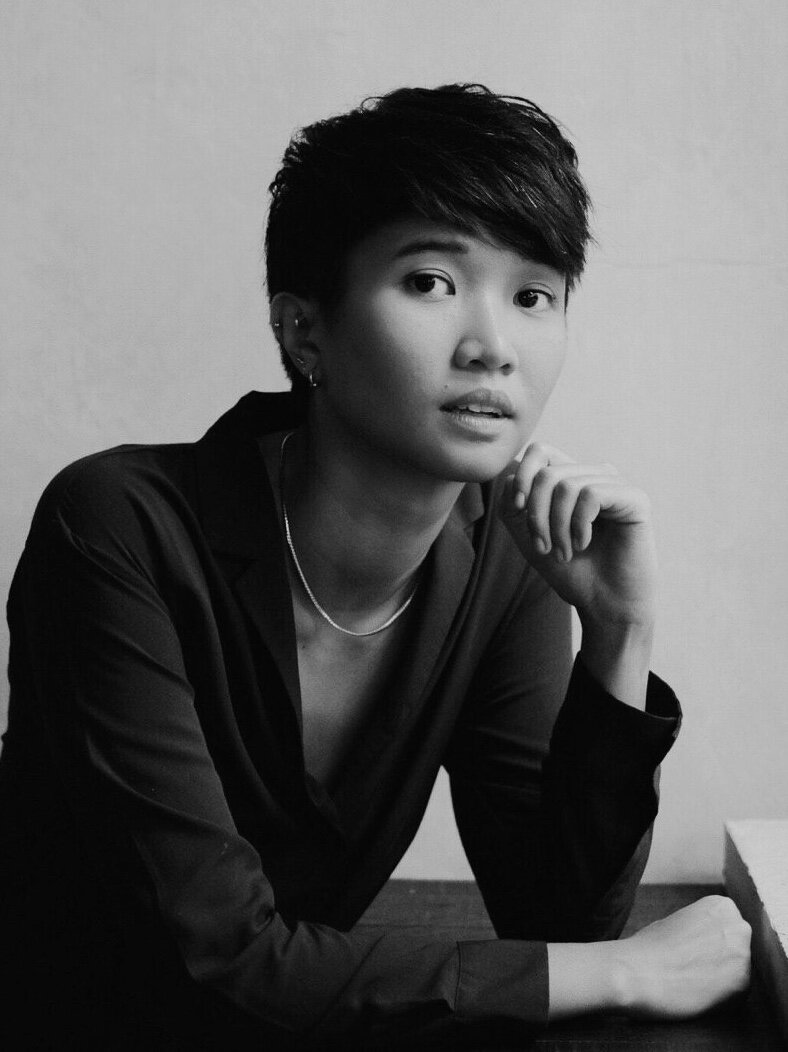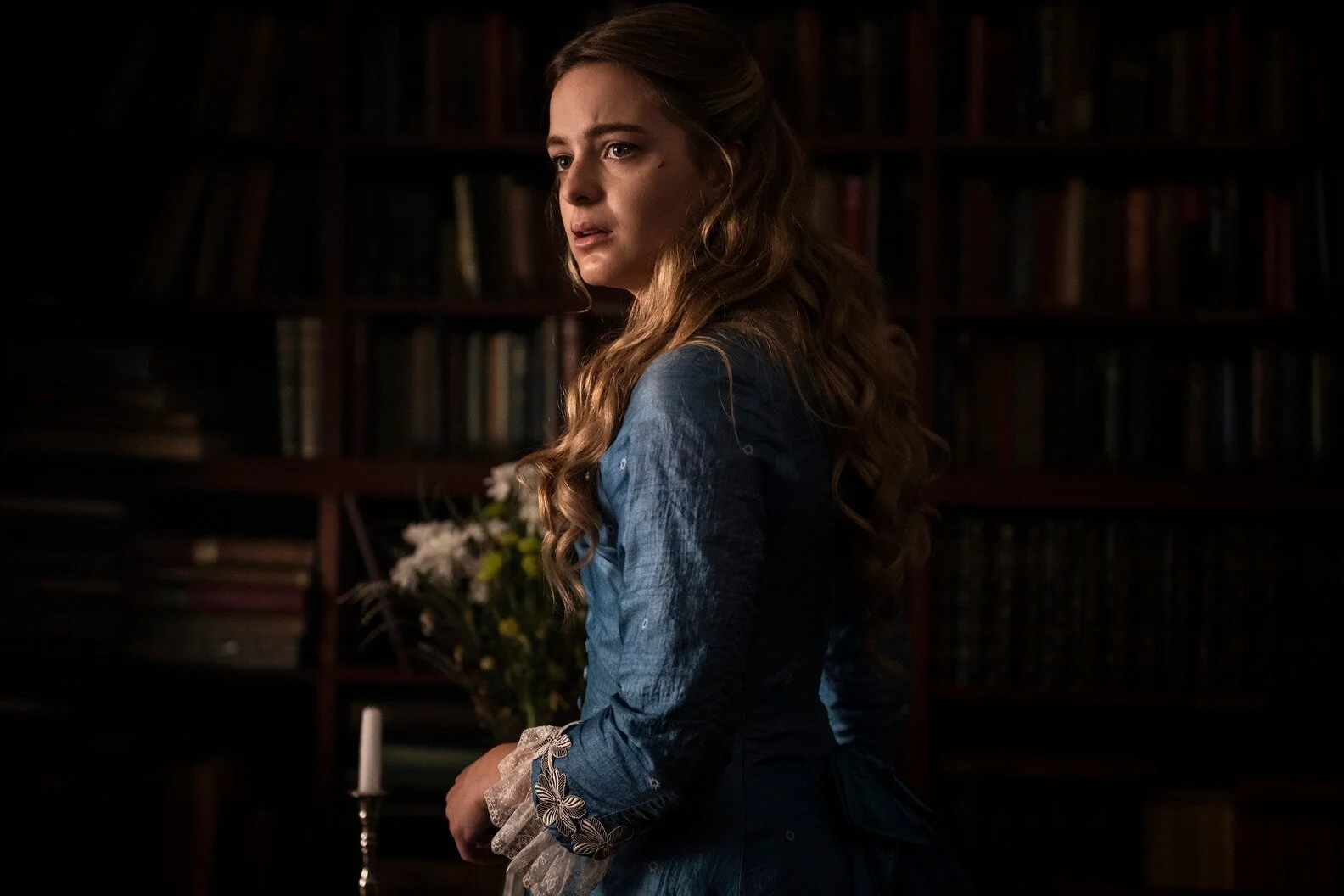Girlhood, Pleasure, and the Longevity of Catholic Guilt: In Conversation with Karen Maine, director of Yes, God, Yes
*Spoilers ahead*
Yes, God, Yes is funny, candid, enlightening, warming and clever. Karen Maine’s feature debut tenderly explores budding female sexuality entangled by fears of eternal damnation. Set in Iowa, USA during the early 2000s, it is inspired by the writer-director’s own godly adolescence.
Photo Courtesy of Yes God Yes Production
Alice (Natalia Dyers), who attends a strict Catholic high school, is in the midst of a sexual awakening: rewinding thatTitanic scene a few too many times and partaking in an erotic AOL chat. After a rumour circulates around school that she ‘tossed the salad’ of a fellow student, not only will Alice spend the rest of the film trying to find out what the hell that means, but she also attempts to salvage her virtuous reputation at a religious retreat.
I was fortunate enough to chat with Karen about her film over email. Having endured a similar education myself, we also exchanged musings over our shared experience.
You’ve said Yes, God, Yes is semi-autobiographical. Did any part of the filmmaking process feel confessional or cathartic to you?
Yes! And other parts even provoked some PTSD, like when we were shooting at the retreat centre (which looked so much like the actual retreat I went on as a teenager). In between takes I’d look around at everyone standing in their costumes in this environment and have some serious flashbacks. But I always wanted the film to feel authentic, so it was all worth it. I’d say the catharsis came much later, once the film was released and I started hearing from others who experienced a similar upbringing/adolescence, and how my film helped them feel seen or heard in some way. So it was catharsis in solidarity, really.
What were some of your favourite coming-of-age movies growing up?
There’s been so many great ones recently, but growing up I’d say Clueless, My Girl, Don’t Tell Mom the Babysitter’s Dead, Can’t Hardly Wait, Grease, and oh so many more.
The film is set in the early 00s. It made me realise how much the internet is educating today’s younger generation. 2020 Alice would probably have just looked up ‘tossing salad’ on Urban Dictionary. Do you think a current version of this film would be hugely different?
In some ways yes and in others no. 2020 Alice would have definitely looked it up right away, but I think she would have still felt immensely guilty for having done it. In fact, setting it in 2020 may have made her guilt even more profound, given the fact that the ability to sin on the Internet is much easier now than it used to be. But, on the other hand, the Internet can also lead you to other people who are like you or think differently from those around you in your physical world, and that can (sometimes) be a real blessing.
The image of a curious Catholic schoolgirl can be so hypersexualised, but you capture Alice’s sexuality so gently and honestly. Especially the masturbation scenes. Did you consciously frame these in a certain way?
Agreed! This was very much in the forefront of my consciousness. I don’t think any teenage girl’s sexual awakening is ever “sexy”. It may feel sexy to them, but the actual circumstances are usually awkward and/or funny, not sexy. Growing up, I’d seen plenty of films about young men fumbling their way through sexual awakenings in this fashion and, even though that was what I experienced as well, I never saw young women going through these same things on screen. We’re obviously getting more and more authentic representations of this now -- messy stories about women coming of age, which is wonderful -- but we still have a long way to go.
Natalia Dyer’s performance is spot on. What kind of direction did you give her?
Natalia is an amazing actor. She can make emotional moments poignant and she has excellent comedic timing. Direction-wise, I shared a lot of my personal stories with her to help put her in that character’s mindset, and we were just always talking. I imagine that Natalia also found her own ways to relate to the character based on her own experience as a young woman.
Chris, one of the retreat leaders, has very luscious arm hair. I love how that contributes to her sexual awakening. Did you play around with any other ideas for that scene? How did it come about?
Totally! As a young girl, I often found myself attracted to random specific parts of people’s bodies. Eyebrows were another. They’re not all hair related though, I swear! Also ankles, thighs, shoulder blades, waists, but it totally depends on the person. The arm hair came about because I used to work in a bookshop, and one day I was unpacking a box of new books and I pulled out Stanley Tucci’s cookbook, The Tucci Table, and I was suddenly so incredibly attracted to his forearms. And so I put it in the film.
What part of shooting was most memorable?
Too many to just pick one! Any day that Tim was on set was a great day because he’s hilarious. And any scene with Fran and Natalia was great because they had such an amazing natural chemistry that made it really feel like they had known each other for a long time. My favorite scene to film was the one at the biker lesbian bar with Natalia and Susan Blackwell. That was a great day!
The film has such an enjoyable comedic rhythm. What are some influences that shaped your sense of humour as a writer and director?
Oh so much! I was lucky to have some very funny family members and friends from a young age: my brother, my parents, my aunt are all very funny. I loved watching SNL growing up... Christopher Guest’s films, Adam Sandler, Tina Fey, Amy Poehler, Eddie Murphy, Maya Rudolph... The list goes on.
Gina’s character is a brilliant addition. That scene at the gay bar is so funny yet comforting. This whole film in a sense is a personification of Gina. Like a reassuring nudge towards realising the absurdities of Catholic teachings on sexuality. Is that what you intended?
Yes, but I’m not sure I’ve ever put it as succinctly as you just have! Gina is sort of a stand-in for every person or thing in my life that, over time, helped me begin to understand different perspectives and ideas, and be able to think critically.
Photo Courtesy of Yes God Yes Production
As well as Gina, we later find out that Wade is also (allegedly) gay. Catholic views on sexuality are doubly menacing for queer folk. Was it important for you to include glimpses of that?
Well, Wade’s sexuality isn’t ever explicitly stated. It’s just that the other students assume that he’s gay. It’s more making a statement about rumors and how they get made and spread around, and Alice feeling guilty for doing to him what’s been done to her. But I was conscious of wanting to use Gina’s character as a positive force for Alice, especially because of how horrible queer people have been treated by the church over the years. It felt right to make Gina the only person who really ever listens to Alice, and gives her support and advice.
I wasn’t religious at all throughout my time at school, but after seven years there I’d somehow inherited a form of Catholic guilt. I think even without a fear of eternal damnation, you internalise that habit of self-regulation. Do you feel any sort of hangover or lingering Catholic guilt from your school days?
Ha. A “hangover” is such a delightful word for it. It’s more a deep, cavernous tomb that years of therapy have tried to dredge up and analyze. It’s there. It may always be there, but I’m getting better at trying to recognize it and understand it and confront it.
Photo Courtesy of Yes God Yes Production
Can’t argue with that. How would you describe your relationship with religion now?
I was very firmly anti-religion from about age 18 until 30, when I married a Jewish man and started researching that religion. I’m slowly coming around to the idea of being religious again, but am approaching it on my own terms this time around, as opposed to being raised in a religion from birth. It makes a big difference to be able to choose on your own and at your own pace.
You’re now based in London. How does it compare working in the UK to the US?
I’m in London right now editing a new TV series that we just wrapped shooting a few weeks ago. Things are pretty similar in both countries, there are a few different crew terms (for examples in the States they’re “Extras”, but in the UK they’re “Supporting Artists”), but nothing is drastically different.
What is your advice for women looking to start a career as a writer or director?
To just go for it! It helps to have experience but the best thing to do is to just make what you want, and how you want to make it. Don’t worry about what you have or haven’t done before, every slate is a clean slate. Don’t wait for permission. Just do it.
Finally, what projects are you working on next?
This TV series I’m working on now should be out sometime next year. It’s called “Starstruck” and it will be on BBC3 and HBO Max. It’s written by Alice Sneeden and Rose Matafeo and stars Rose. It’s a lovely rom-com that is sweet and absolutely hilarious. After that, I’ve got a feature with Brownstone Productions that I’m attached to direct.
Watch Yes, God, Yes now on Netflix and Amazon Prime!
Click here to watch the trailer: https://www.youtube.com/watch?v=8GK8M7Fgx5Q
Follow Karen on Instagram @karen__maine









